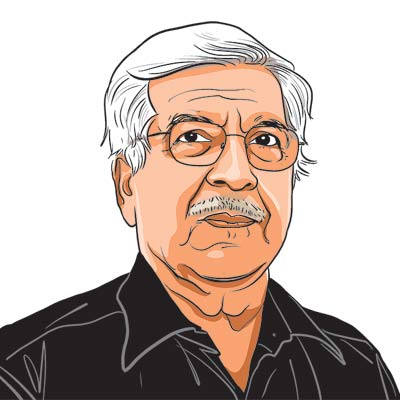Opinion Moving beyond prelims
Greshams Law says bad money drives out good money. Since I am an optimistic kind of blighter,Ive an Alagh law: good ideas eventually drive out bad ones. I once chaired a group which wrote a report on higher civil service recruitment and training. It took a year-and-a-half and the countrys best and brightest helped us. […]
Greshams Law says bad money drives out good money. Since I am an optimistic kind of blighter,Ive an Alagh law: good ideas eventually drive out bad ones. I once chaired a group which wrote a report on higher civil service recruitment and training. It took a year-and-a-half and the countrys best and brightest helped us. Some of it was implemented and some not. The latter included lowering the age at first entrance,changing over from a Macaulay kind of testing procedure to finding out the candidates aptitude and skills for a civil service career in the 21st century and a lifetime training programme. The last one was implemented. The earlier two were not. One does not know why the report remained a classified document and I was not given access to it later when I wanted it for some work but now someones put it on the Internet. Dr Moily read the reports and gracefully
acknowledged and endorsed the recommendations in the reports of the Administrative Reforms Commission he chaired,beginning with the Tenth Report. And theyve been raised again by the chairman of the UPSC in the inaugural UPSC Foundation Day Lecture Series earlier this month.
The lowering of the age of first entrance is a serious matter. The idea of giving as many chances as possible to certain sections of the population arises out of a concern that poor children should have a level playing field. I am a great
believer in having candidates from poor families in the civil service,and fully endorse the point that my former colleague Ram Vilas Paswan often makes: a collector or SP of SC/ ST origin makes more difference to outcomes than a minister. Also in JNU,I have seen how the best and brightest could come from very poor families,if you had the patience and were fair. But the percentage of candidates from poor SC/ ST families coming from backward areas was unfortunately declining a matter of great concern. The Zakir Hussain Centre of Educational Research at JNU was asked to find out; they reported that the cost of preparing for the exams could be quite high in fact above a lakh of rupees a year in the urban areas they surveyed. Poor children cannot pay this cost,so drop out. It was children from better-off sections who could take advantage of the age relaxations. But there was a sunny side. My experience of JNU showed that when you do a fair selection and take only a few in JNU tens of thousands applied and only nine hundred were taken then,at the national level,you get many extraordinary candidates at lower ages. In the civil services lakhs of candidates apply so the choice is even wider. At each point in the scale you get many candidates. Therefore one would get very good candidates at younger ages,from genuinely poor families,from backward regions. Some allowance has to be made for candidates from rural and backward areas,but very old entrants become a drag.
Dr Kalam,then not yet president,spent a lot of time with the committee. He got the defence establishments psychiatrists to sit down with senior service officers and designed personality tests especially for the civil services.
Services selection boards have been using them for a long time,but the civil services have been holding out. The tests are not infallible,of course,and since civil service selections can be contested the idea is for the selection boards to take the results into account as one factor. But the main work was to design a new selection examination procedure taking into account this centurys new needs. The world over it is transparency,accountability,proclivity towards technological savviness,concerns for the disadvantaged,ability to network in a society where newer organisational forms are increasingly solving social problems,energy to pursue objectives under stress that are being looked for. The UK the mother country for our system the US,France and many others are changing. We remain in a cul-de-sac of coaching institutes producing the civil servants of the future.
The first test should,as the UPSC chairman says,be an aptitude test. Those who qualify should be tested in those skills and aptitudes that are needed for a services career,governance,environment,technology and an understanding of an increasingly networked world in terms of opportunities and threats.
Once in,they have to be given the best training on a continuous basis,encouraged to specialise,allowed mobility and protected from the ravages of interference. But that,as they say,is another story.
The writer,a former Union minister,is chairman,Institute of Rural Management,Anand
express@expressindia.com




